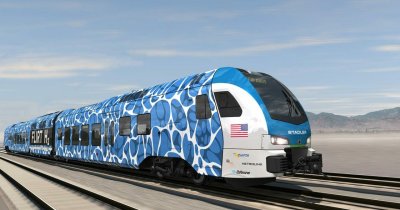According to Reuters, the Japanese company also set the goal to be able to build two million vehicles every year by the next decade, aiming to get a significant share of the growing EV market.
Toshihiro Mibe, CEO at Honda, said that "as far as resource investments over the next 10 years go, we're going to invest about 8 trillion yen (editor's note: 64 billion dollars) in research and development expenses."
Honda wanted to establish a dedicated EV production line in the US, where it could make use of the local Ultium batteries provided by General Motors.
Last week Honda announced their collaboration with GM, as the two companies want to make a series of lower-end electric vehicles, while the American company also plans to build two electric SUVs for Honda, starting 2024.
Christopher Richter, an analyst at CLSA, said that "this puts them in good company with a lot of other makers that have made big battery announcements ... ultimately the world is going to leave internal combustion engines behind."
The 64 billion dollar investment includes a 43 billion yen (over 340 million dollars) fund for a demonstration line dedicated to solid-state batteries, which should start production in spring 2024.
Honda, alongside other Japanese car manufacturers, said that even if they start producing more electric vehicles, they won't give up on the hybrid technology.
Hybrid vehicles still belong on the car market, especially for emerging countries that did not invest yet into making a proper charging system on the public roads.
"By no means is this the end of hybrids and the replacement of all hybrids with EVs. We will develop our current hybrids and use them as a weapon in our business", Mibe added.
Toshihiro Mibe, who has been CEO at Honda for about a year now, already made some bold statements, such as the intention to partner with Sony in order to develop and produce electric models, the first one being expected around 2025.
Last year, Mibe said that his company aims to exclusively sell electric and cell fuel vehicles by 2040 on a worldwide level.
 Mihai - Cristian Ioniță
Mihai - Cristian Ioniță












Any thoughts?